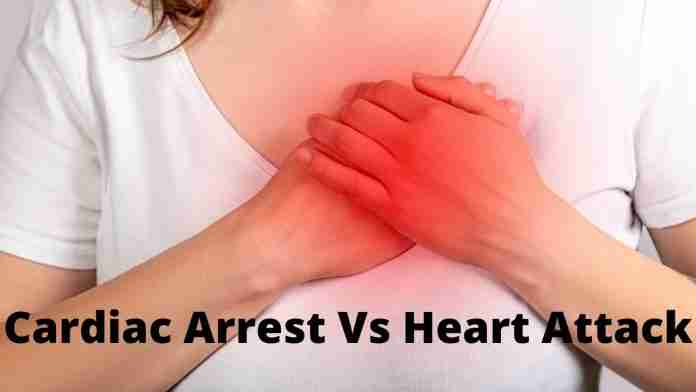What is cardiac arrest?
Cardiac arrest occurs when the heart stops pumping blood throughout the body. It occurs when the electrical signals in the heart are disrupted. When the heart stops pumping blood, the brain stops receiving oxygen, causing the patient to become short of breath and finally unconscious.
Cardiac arrest: Causes and symptoms
Cardiac arrest can occur for a variety of reasons, the most frequent of which is a heart attack. Cardiac arrest is a danger for those who have congenital heart defects or have problems with their heart’s electrical system.
Patients who are undergoing cardiac arrest lose consciousness and fall down all of a sudden. Slight chest pain, loss of breath, uneasiness, and dizziness are some warning indications preceding cardiac arrest. People commonly disregard these indications, however, they are among the most common cardiac arrest warning indicators. Stress, as well as dietary supplements, can have a negative effect on the heart.
A cardiovascular arrest can be reduced by leading a healthy lifestyle and eating a nutritious, well-balanced diet.
Is cardiac arrest the same as a heart attack?
It’s fairly uncommon for folks with only rudimentary medical expertise to mix up the cardiac arrest and heart attack. Despite the fact that they sound similar, they are vastly different. A heart attack, also known as a myocardial infarction, is a condition that occurs when the blood supply to the heart is suddenly blocked. When blood flow to a section of the heart is reduced or absent, the area served by that artery begins to die, a condition known as infarction in medical terms. The heart is still beating and doing its job, but not as efficiently as it once was. The longer a portion of the heart goes without receiving blood, the less likely it is to recover. It’s referred to as a problem with the heart’s ‘plumbing’ system by cardiologists.
In a cardiac arrest, on the other hand, the heart suddenly stops beating. This is usually due to a malfunction with the heart’s ‘electrical’ mechanism. There is no blood flow to the entire body, including the brain, after the heart stops beating. If you ever see someone collapse unexpectedly, he may only have a few minutes before his body suffers irreversible harm. He or she requires emergency medical assistance, and you may need to begin cardiopulmonary resuscitation (CPR) until professional medical assistance arrives.
Despite the fact that the two illnesses are unrelated, there is a link. A cardiac arrest can occur in some cases of heart attack, however, a heart attack is the most prevalent cause of cardiac arrest. Other illnesses that might damage the electrical system of the heart, such as cardiomyopathies (muscle diseases) and electrolyte problems, can induce cardiac arrest.
Pain, dizziness, and shortness of breath are some of the signs of a heart attack, whereas a cardiac arrest causes an almost rapid loss of consciousness. In layman’s terms, a heart attack is an electrical problem, whereas a sudden cardiac arrest is a circulatory problem.
Chances of survival
A person’s odds of surviving after a cardiac arrest or a heart attack differ significantly. Despite the fact that survival depends on receiving CPR from someone close right away, about 90% of persons who experience out-of-hospital cardiac arrests die. CPR can increase or treble a person’s chances of survival, especially if performed within the initial few minutes of cardiac arrest.
Heart attacks, which are less serious, do not have such high mortality rates since a blocked artery can be promptly unblocked with the correct therapy. The goal of treatment for a cardiac arrest is to restore circulation and the electric rhythm, whereas the goal of treatment for a heart attack is to reopen blocked arteries and restore blood flow. If someone suffers a cardiac arrest, phone for aid and start CPR, and if they have a heart attack, take them to the hospital.



















![10 Countries With the Best Healthcare in the World [Statistical Analysis] Countries With the Best Healthcare in the World](https://articleify.com/wp-content/uploads/2025/07/Countries-With-the-Best-Healthcare-in-the-World-1-150x150.jpg)









